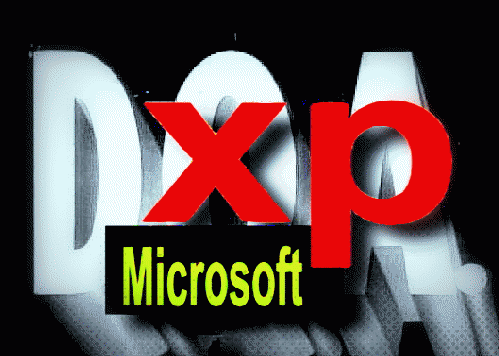The sad irony is that loyal Windows users seem to truly love XP, and consider it the only "true" Windows experience. They dislike newer systems especially Windows 8 which seems to be adapted for tablets as if the PC and laptop no longer exist! I am a life-long techie; I was helping form the "social internet" as early as 1989 --I "feel" as if I invented it. While I never personally liked Windows (or Microsoft, preferring Unix-like workstations), I can feel the purist Windows users' pain and I feel a tremendous personal urge to do something about largely because so many good, intelligent people are being hurt: there is no democracy, anywhere.
Many will say these users should "go with the program" and upgrade, and many others will say that Microsoft is "evil" and that these users should be using free systems such as Linux. Linux requires significant administrative skill. It is also another for-profit "program" for corporations needing servers, such as for the web, or for business logic; Google and the weather service use Linux, for instance. The Linux community has been deceptively describing it as a "people's system," probably to recruit volunteer developers in its pre-corporate days.
Two solutions: legislation and a new, true "people's system"
LEGISLATION is what is needed to curb techno-corp greed. MS could be forced to provide updates for the same "few dollars" per system that Britain and Holland are paying.
A much better, more democratic, solution-- the system could be "given" to the people who have been "left out in the cold." That is to say, that systems that are no longer supported, and thus abandoned, can be "reverse engineered" so that users can work together to provide support, which they can easily do because the computer community is so "hack-oriented." Linux, for instance, is considered so safe that specific security software is unnecessary (though I would personally be less confident).
A legislative solution may be helped by a particularly sticky situation that corporations and governments have created for themselves; this is to say that they no longer have a "moral qualification" for systems security. By deliberately creating system vulnerabilities, that is to say being "anti-security," they no longer have a right to complain about the proliferation of system hacking, say, by the "anonymous" group. By governments and corporations we would have to mean banks and the military: everybody's savings and security. This is an emergency if I ever saw one; government needs to act if it plans to remain in control.
Third (long-term) solution
My strong, decade-long, belief is that the L4 micro-kernel operating system is the way to go. It is the successor of the core Unix system (especially the Apple operating system), and is highly modular (being a microkernel) so that components can be switched-out based on users' needs --or vulnerability to predators. As it is, all operating systems (except Linux) are hybridized microkernels (owing to microkernel flexibility). A very, very major part (and headache) of computer engineering is the "driver system," or the computers' ability to use printers, mice, cameras, etc. In a micro-kernel system, driver programming architectures can be switched-out, or even combined, to allow access to all drivers, such as for MS, Apple, or others.
The sad part about L4 is that it is fully proprietary, the opposite of open source (or purely-free). It was open in the early part of the 2000s, but a group in Dresden took control of development using a deception as Linux did, except it mislead programmers about its licensing implying that because it was academic, it was free. L4 is in nearly every cell phone as a "sub OS" to handle telecom-specific functions, but a fully-L4 smart phone is available for intelligence-agencies for (many thousands). The initial L4 work was done, however, in the US by a Utah university and is free, it is called OSKit, and can easily be brought up to date, perhaps by the same programmers who worked for the Dresden group.
It is hard not to get technical when discussing computers
I really mean this article to be viewed from democratic, bottom-up activist perspective, and not the techie's (myopic) view. But, sadly, it is nearly impossible to discuss computer politics w/o getting technical. Rare, is the techie who gets "teary-eyed" over these issues, such as I do.
Activism, however, is what is needed and it is needed now because of the present security emergency that is being forced by MS and governments. Unfortunately, programmers truly suck at activism, so it is up to the average person to act. Average people need to learn the issues (both political and technical) so that that they can act, that is to say "get the tech headache."
The "uber" guru: Richard Stallman (RMS)
RMS is the guru of computing freedom, and a great source. He started the "hack" movement as an outsider inside MIT during the Vietnam protesting era, and founded both the GNU software movement and the Free S/W Foundation. He seems (to me) to be highly-influenced by socialist ideals.
Microkernel activism can be found here: L4 & Linux Society







